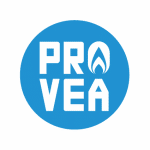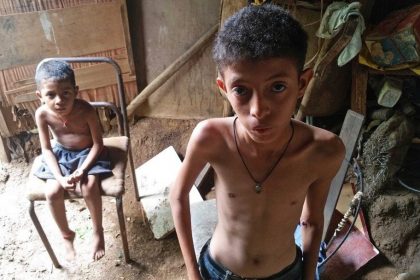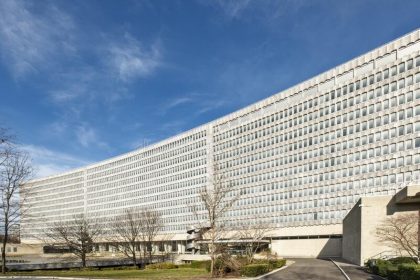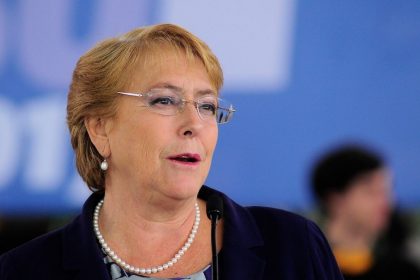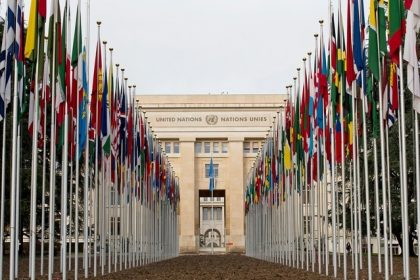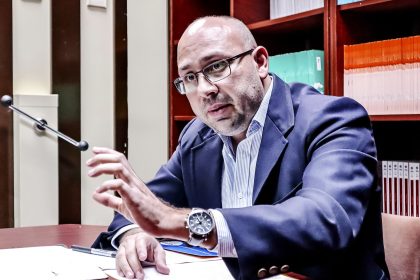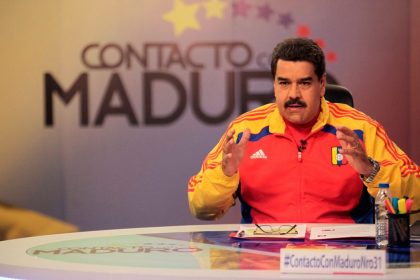As organizations deeply concerned by the suffering of the Venezuelan people, we urge all
relevant actors to ensure that any aid brought into the country is organized and distributed in
accordance with the humanitarian concerns of actors with technical expertise, both at the border
towns where aid is being transported, as well as within Venezuela.
The regime of Nicolas Maduro has repeatedly refused to recognize the scale of the
humanitarian emergency in Venezuela, and has limited initiatives to provide assistance on the
scale necessary to alleviate the conditions that are causing many to flee the country. Until the
country is able to overcome its deep economic crisis, it is clear that the most vulnerable
Venezuelans will need assistance from the international community. The Venezuelan health
system is in disarray and the scarcity of medicine and functioning medical equipment are having
an acute impact on public health. Similarly, hyperinflation and scarcity of basic foods have led to
widespread malnutrition. Those who are suffering the most are the poorest and most vulnerable
sectors of Venezuelan society. For this reason we believe that aid must be planned, organized,
and distributed in close coordination with national and international humanitarian organizations
that have experience in such operations.
In spite of its limited reach compared to the severe effects of the complex humanitarian
emergency, it is important to note that the Maduro regime has not entirely prevented the
international community from sending in aid. Venezuelan civil society organizations have been
receiving international support for over three years to fight malnutrition and broaden access to
medication, including through the United Nations Central Emergency Response Fund (CERF) and
the Directorate-General for European Civil Protection and Humanitarian Aid Operations (ECHO).
In some cases these organizations have worked with UN agencies such as the World Health
Organization (WHO) through the Pan-American Health Organization (PAHO), and the United
Nations International Children’s Emergency Fund (UNICEF). The UN system has an important
role to play, which Venezuela’s National Assembly noted in a January 26 letter to the UN
Secretary General in which it requested the “activation of early support and crisis management
mechanisms of the United Nations system.”
Because of their technical expertise and knowledge of existing systems, we believe that the
organizations that have been actively engaged in the aforementioned efforts should be
consulted on an ongoing basis regarding any humanitarian initiatives.
It is noteworthy that many of these same organizations have maintained a distance from
current efforts to bring aid over the Colombia-Venezuela and Brazil-Venezuela borders. Instead,
they have stressed that humanitarian responses must follow standard humanitarian and
protection principles, including: neutrality, impartiality, independence, humanity, and doing no
harm. These groups have distinguished humanitarian aid from other activities of political,
ideological or military nature, out of a concern for the wellbeing of those most deeply affected
by Venezuela’s crisis. In their operations they have insisted on a strict emphasis on human
rights and rejection of the use of force.
We echo these concerns and make them our own. Ultimately any effort to provide humanitarian
aid to Venezuelans should be organized in order to maximize efforts to get to the most people
possible in a way that avoids doing harm, regardless of political considerations.
Venezuelan signatories:
A.C. Equipo de Proyectos y Asesoria Social (EDEPA)
Acceso a la Justicia
Acción Ciudadana Contra el SIDA (ACCSI)
Acción Solidaria
Asociación Civil Fuerza, Unión, Justicia, Solidaridad y Paz (FUNPAZ)
Asociación Civil Mujeres en Linea, Venezuela
Asociación Civil Red de Casas Don Bosco
Asociación Civil Vida y Luz (Asoviluz)
Asociación Venezolana para la Conservación de Áreas Naturales (ACOANA)
Asociación Venezolana para la Hemofilia
Aula Abierta, Venezuela
Caleidoscopio Humano
Centro de Acción y Defensa por los Derechos Humanos (Cadef)
Centro de Derechos Humanos de la Universidad Católica Andrés Bello (CDH-UCAB)
Centro de Investigaciones para la Infancia y la Familia (CENDIF), Universidad Metropolitana
Centro de Justicia y Paz
Centro Gumilla
Centro para la Paz y los Derechos Humanos, Universidad Central de Venezuela
Civilis Derechos Humanos
Comisión de Derechos Humanos de la Facultad de Ciencias Jurídicas y Políticas, Universidad
del Zulia
Comisión Nacional de Derechos Humanos de la Federación de Colegios de Abogados, Estado
Táchira
Comisión para los Derechos Humanos del Estado Zulia (Codhez)
Comisión para los Derechos Humanos y la Ciudadanía (CODEHCIU)
Comité de Derechos Humanos de Guajira
Conciencia Ciudadana A.C
Confederación Sordos de Venezuela (Consorven)
Control Ciudadano para la S
Espacio Público
Federación Nacional de Sociedad de Padres y Representantes en defensa del Derecho a la
Educación; (Fenasopadres) capítulo Anzoátegui
Funcamama
Fundación Aguaclara
Fundación de lucha contra el cáncer de mama (Funcamama)
Fundación Rehabilitarte
Fundación MAVID Carabobo
Fundamujer
Humano Derecho Radio Estación
Instituto Mead de Venezuela A.C
Laboratorio Ciudadano de Noviolencia Activa
Laboratorio de Paz
Linda Loaiza López
Monitor Social, A.C.
Movimiento SOMOS
Mulier
Observatorio de Derechos Humanos de la Universidad de Los Andes
Observatorio Venezolano de los Derechos Humanos de las Mujeres
Prepara Familia
Proadopcion Asociación Civil
Programa Venezolano de Educación Acción en Derechos Humanos (PROVEA)
Proiuris
Promoción Educación y Defensa en DDHH (PROMEDEHUM)
Proyecta Ciudadanía A.C
Red Acción y Defensa (RADDH – Cojedes)
Red de Activistas Ciudadanos por los Derechos Humanos (REDAC)
Red por los Derechos Humanos de Niños, Niñas y Adolescentes (REDHNNA)
RedesAyuda
Red Venezolana de Gente Positiva
Servicio Jesuita de Refugiados
Sinergia, Red Venezolana de Organizaciones de Sociedad Civil
StopVIH
Un Mundo Sin Mordaza
Uniandes
Unión Afirmativa de Venezuela
Unión Vecinal para la Participación Ciudadana A.C
Ventana a la Libertad de Caracas
International signatories
APUK — Servicios Legales Comunitarios, Ecuador
Caribe Afirmativo, Colombia
Center for Justice and International Law, United States
Conectas Direitos Humanos, Brazil
Red Jesuita con Migrantes
Sin Fronteras IAP, Mexico
Washington Office on Latin America (WOLA), United States
